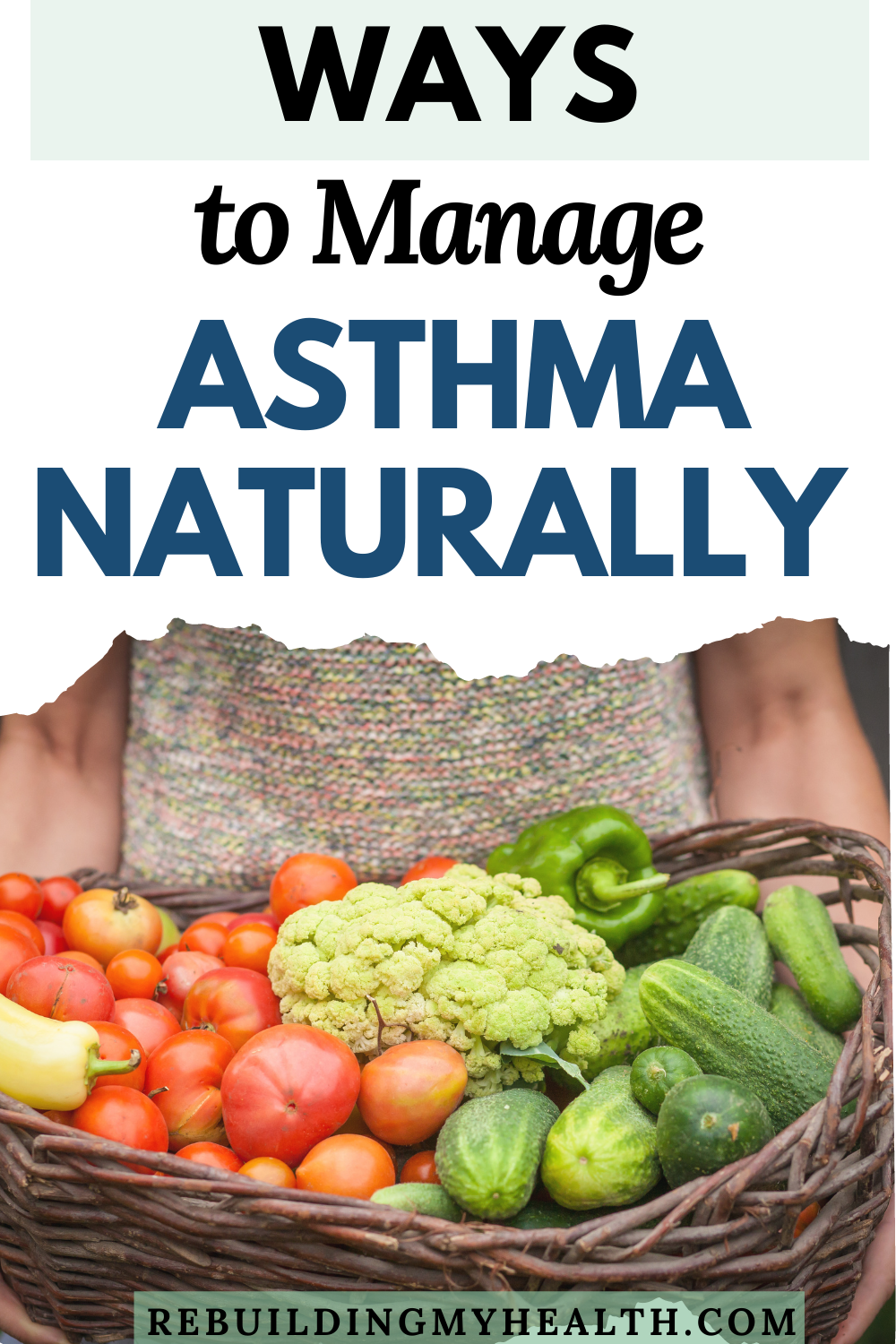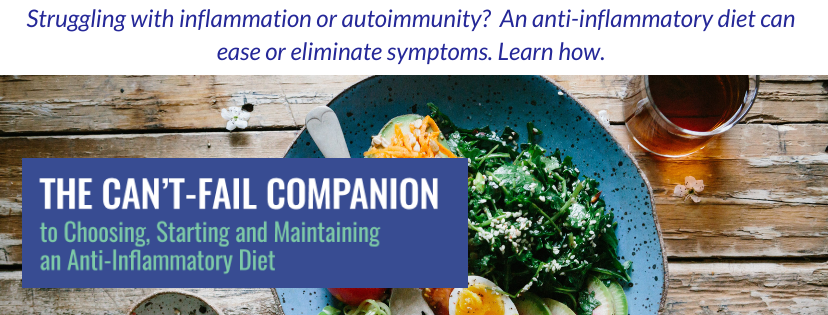How I Manage Asthma Naturally with Diet, Environment
“I’ve noticed that my allergies as well as my asthma have been the mildest ever since eating more plant foods.”
– Erin
By Erin Day
When I was a child, a large fire burned in the valley where I lived in Southern California – triggering wheezing and trouble breathing. And soon, a diagnosis of asthma.
It was a bit scary considering I was only six years old. I was confused, not sure what was wrong or going on. Though, a diagnosis and a plan of treatment was somewhat comforting.
I believed things could get better, but I’d soon wonder if it was worth the cost.
Back then, I had to stay in the house and receive breathing treatments for 20-40 minutes. I sat with equipment on my face, attached to a machine that pumped medicine out for me to inhale. It was uncomfortable, and I felt like something was wrong with me. I was attached to a machine while the other kids were outside playing.
I always had to be mindful of my physical activity because, if I did too much, I might have an attack.
I’d protest the breathing treatments every so often, but I gave in because I cared more about getting better. My parents encouraged me at least, helping me understand how the medicine could help me.
Asthma: Brought on by Exercise, Allergies
I’m one of 25 million other people in the United States with asthma. According to Mayo Clinic, “asthma is a condition in which your airways narrow and swell and may produce extra mucus.”
Exercise or allergies can both set off symptoms, and I’ve experienced both. It was discouraging because I wanted to stay fit and healthy and spend time in nature without worrying about wheezing or coughing.
As far as is known, asthma can’t be cured, but can be treated and managed.
Fortunately, with proactive steps, I’ve been able to improve my condition from severe to mild.
Concerning Side Effects with Asthma Medications
Over the years, I’ve tried numerous medications, from corticosteroids to combination inhalers to anticholinergics to leukotriene modifiers.
The side effects can run the gamut, from mild to severe: oral thrush, hoarseness, sore mouth or throat, cough or windpipe spasms, decreased bone density, impaired growth in children, easy bruising, cataracts, glaucoma, increased heart rate, headache, dizziness, anxiety, nervousness or tremors, rashes, weight gain, fluid retention, high blood pressure, elevated blood sugar, osteoporosis, muscle weakness, cataracts, glaucoma, upset stomach and type 2 diabetes.
Personally, I experienced impaired growth, increased heart rate and weight gain, which I only learned about from my doctor after asking about it.
After a while, I was able to stop taking medication and just use an inhaler as needed. I wasn’t very active during this time in my life (adolescence).
Because my asthma could be triggered by allergies, allergy meds kept things at bay – for a while.
However, I started exercising regularly in college, and this often set off my asthma. Again, I used my inhaler to control attacks. I was back to experiencing feelings of frustration with my body.
As with most medications, an inhaler comes with its own side effects. I was surprised when, while picking up my prescription, a pharmacist told me I might experience accelerated heart rate. I began to wonder if it’s even really safe to use. I even heard that the medications I used could stunt growth! I don’t want to put one aspect of my health at risk for the sake of another.
Managing Asthma Naturally
When you have asthma, your airways are always inflamed. I realized that many foods have anti-inflammatory properties and wondered if this could be a natural, safer option in helping manage asthma.
Anything that could reduce the chances of me experiencing those life-inhibiting symptoms, I’d try.
I began managing my environment and lifestyle to reduce inflammation and the potential for attacks.
Diet
I’ve cut down on dairy and meat, and eat anywhere from 10 to 20 servings of fruits and vegetables a day. I’ve noticed that my allergies as well as my asthma have been the mildest ever since eating more plant foods.

Environment
I try to eliminate things that set it off like dust, smoke and other irritants. And now I am mindful about living in places with good air quality. Currently, that’s in Washington, Utah. The AQI (air quality index) rarely gets over 37, which is considered good. There is a lot of great hiking here, and I am able to enjoy the outdoors more than ever before.
Alternative treatments
Diana Rodriguez suggests trying the following alternative treatments in conjunction with your asthma treatment:
● Steam baths — May reduce nasal congestion and airway irritation
● Herbs — Garlic, ginger, turmeric, honey and omega-3s can decrease inflammation
A steamy shower always clears up my nasal passages, which helps manage my allergies, and opens up my airways. And I do consume ginger, turmeric and honey when I am feeling under the weather.
Exercise
If your asthma is exercise-induced, there is no need to give it up. For one, avoid potential triggers like cold or dry air, air pollution and chemicals.
Doing a warm up, breathing through your nose, wearing a face mask or scarf, and exercising regularly can prevent or minimize symptoms as well.
I exercise regularly without having a hard time catching my breath and only use my inhaler like twice a year now.
Marc Meth, MD, FACAAI, FAAAI, claims running could also help control asthma symptoms. Just as regular exercise can, running can improve lung function, up your oxygen capacity and decrease airway inflammation. You can even run a marathon when you have asthma.
When exercising, it is important to be aware of your limits and listen to your body – if your body is screaming at you to stop, you probably should. What’s important is knowing you can still do the things you want to do even if you have asthma.
With all these changes, I haven’t experienced an attack in years. I even have milder reactions when I’m around something I am allergic to. I am able to exercise regularly at the gym, three to five times a week. I do, however, still have to watch my heart rate.
These days, I’m able to live fully and breathe more easily – despite asthma. I’m hopeful that the longer I am mindful about my nutrition and environment, the more I can forget about my asthma.
Erin Day is a health writer who has experienced the benefits of plant-based eating and healthier lifestyle habits. She seeks to educate others on how they can better their health through good nutrition.

The information on this site is for educational and inspirational purposes only and is not intended to replace the advice of qualified professionals. Keep in mind that what works for one person may not work for another. Always consult your healthcare practitioners before beginning new approaches or treatments. Some links on Rebuilding My Health may be affiliate links. This means that we may receive a commission - with no additional cost to you - if you make any purchases using those affiliate links. Rebuilding My Health is a participant in the Amazon Services LLC Associates Program. Learn more.

